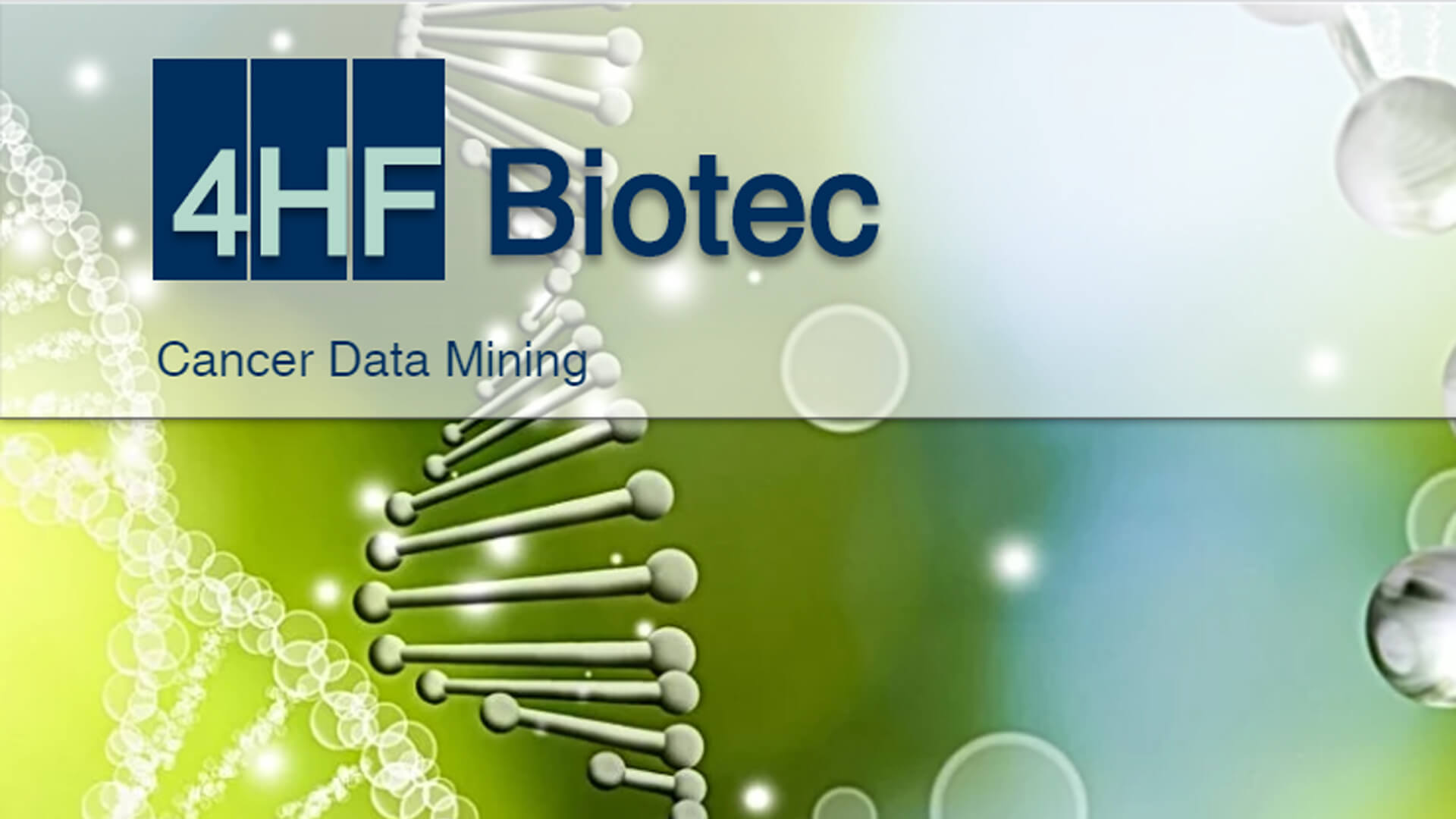
Changing Perception On Collecting Information
Conventionally, data mining in biomedicine in the ‘omics’ era refers to a bioinformatics approach that combines key concepts of biology with advanced computer tools or statistical methods that are primarily used to discover, select and prioritize targets. 4HF Biotec is one of the rare companies that has established a novel data mining platform by unifying multiple sources of data for drug discovery in cancer. Winning the award for Germany’s Most Innovative Cancer Data Analytics Company 2019, we profiled this exciting organization to discover more.
Prof. Dr. Heinz-Herbert Fiebig founded 4HF Biotec in June 2015 following the acquisition of his previously founded organization, Oncotest, by Charles River Laboratories International.
In the 1980s, by his pioneering work in the field of cancer research at the University Medical Center Freiburg, his team demonstrated the closest resemblance of the Patient-derived xenograft (PDX) models with human cancer and postulated their suitability as best models for cancer drug testing. He founded Oncotest GmbH in the year 1993. The company specialized in in vivo pharmacology services, leveraging an extensive collection of more than 400 patient-derived xenografts (PDX) tumor models, as well as a full range of in vitro assays using both commercially available and proprietary PDXderived cell lines. After 22 years, in the year 2015, Oncotest GmbH was acquired by Charles River Laboratories International.
Driven by his motivation in exploring further into Cancer Drug Discovery and putting forward his decades-long research-derived data, he established 4HF Biotec.
“Using their fully functional data mining software, 4HF can run various programs to identify new small molecules that could be used in cancer treatments in the future.”
Traditionally, knowledge-based hypothesis-driven studies are the keyways for cancer therapeutic discoveries. Recently, in the ‘omics’ era, the advancement of the big data resources, catalyzed by breakthroughs in high-throughput technologies, has resulted in a paradigm shift in cancer therapeutic research. The combination of robust computational methods and genomics data has led to several successful clinical applications. However, a prerequisite to drug discovery decisions is the optimization of multiple parameters. Optimally connecting these parameters requires integrative information across multiple sources. However, it is a challenging and complex task to integrate information from disparate domains and the availability of a curated, connected, correlated and aligned platform is sparse.

Specializing in Bioinformatics and Datamining, 4HF Biotec has curated, connected, aligned and correlated a wide assembly of cancer-related databases that will offer an unprecedented amount of information. The research team at 4HF has conducted a deeper data analysis, first analyzing the data from each platform separately and then combining them in an integrated cross-platform analysis. The unified database of 4HF Biotec contains data of several thousands of patient tumors and established models that have been annotated with millions of data points comprising drug sensitivity profiles (tested in vitro and in vivo) and molecular genetic characteristics (such as exome mutations, chromosomal aberrations/gene copy number variations and expression profiles).
All the information available can then be used in analyzing various types of cancers and what type of genetic and transcriptomic perturbations they harbor. In addition, it allows anticipating the normal tissue toxicity which is of paramount interest as numerous drugs fail in clinical trials due to toxicity-related issues. By implementing specialized tools, widgets and statistical analyses it is possible to visualize data from the multiple sources in a single view thereby optimizing the process of target evaluation and facilitating R&D efforts in drug discovery.
Using their fully functional data mining software, 4HF can run various programs to identify new small molecules that could be used in cancer treatments in the future. Hundreds of cancer drugs have already been tested to these stringent standards, along with various mechanisms of action. The best candidates were evaluated in various drug combinations in a large variety of tumor models in vitro and in vivo to test real synergism or additivity. Biomarkers are a naturally occurring characteristic by which a particular process or progression of a disease can be identified, in this case, cancer. In addition, by identifying the appropriate biomarkers, it is possible to predict the treatment response and that would facilitate the decision of providing effective treatments. At 4HF, every new drug evaluation study includes an analysis of a biomarker profile, i.e., all relevant molecular genetic characters associated with drug sensitivities are systematically revealed using various statistical tests. By its in-built algorithms and predictive model it is possible to determine individual cancer susceptibility to therapies. The proprietary model developed by 4HF integrates tools to match and compare patient tumor information to preclinical models. Collectively, the use of 4HF’s proprietary platform and databases allow identifying targets across a spectrum of tumor types, assessing drug sensitivity and determining predictive biomarkers. In the future, this approach would have a scope to be applied in context of ‘Precision Medicine’, i.e., for precise information on targets in individual patient’s tumors, implying that the team can identify the tumors most likely to respond to a specific compound. In this way, cancer patients who are most likely to respond would be chosen and consequently, unnecessary treatment is avoided, increasing the chances of clinical trial success.
The future aim of 4HF Biotec includes development of more efficacious small molecule inhibitors and antibody-drug conjugates (ADCs) in Oncology as a joint venture with other experts from the field. To achieve this goal, as a first step, they have already identified several novel candidates to further develop that into ADCs. They further plan to out-license products and drug repurposing when applicable. In addition, their business model includes a CRO service to the Biotech and Pharmaceutical industries for identifying new targets in oncology, molecular analysis of known targets, identification of the sensitive tumor types in relation to the target and mechanism of action (MOA), discovery of biomarkers and drug profiling. 4HF Biotec is highly interested in establishing meaningful business collaboration with other experts from the industry and academia and always looking for new collaborators and investors.
Funding until recently has been by Founder and CEO Prof. Dr. Fiebig, allowing for the independent development of the methods and technology to the team’s specific agenda. Currently, plans are underway for the submission of a large grant asking for three million euros to the Ministry of Research and Technology in Germany. This would allow for significant development of the technologies that 4HF have already established, as well as beginning to explore other avenues.
“…cancer patients who are most likely to respond would be chosen and consequently, unnecessary treatment is avoided, increasing the chances of clinical trial success.”
Harnessing the power of data analytics, 4HF has managed to change the way in which we should analyze and interpret the information that can be collected. Drawing the strands that bind the various aspects of cancer data analytics together, it is possible to find out novel therapies for cancer. To this end, the data mining software has been perfected with its advanced features, the growth of the company is expected to follow. Piling innovation on innovation, 4HF’s search for investors could lead to a game-changing scenario. The future looks bright for this self-motivated company, drawing on new information to make novel and exciting discoveries.




















